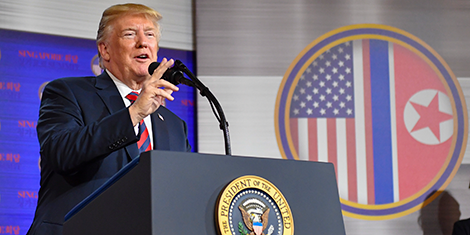
This article was originally published by Pacific Forum CSIS on 11 July 2018.
Welcome to North Korean Negotiations 101. North Korea’s reaction to Secretary of State Mike Pompeo’s recent visit to Pyongyang was expected and does not signal the end of the diplomatic process; it just shows us it will be a long and difficult one. On top of dealing with North Korean-style negotiations, President Donald Trump already made important concessions too soon before concrete North Korean denuclearization steps while Kim is playing a long game, looking 40 to 50 years down the road. Trump, on the other hand, seems to be focused on the next 2.5 years, until the next US presidential election in 2020.



